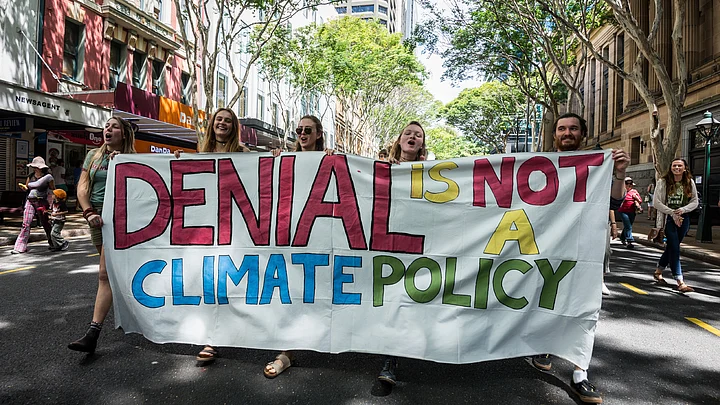Starting Monday, November 30, the world’s nations are meeting in Paris till December 11 to discuss the framework of a new international environmental order. For the world, this could be our last chance to come together and act collectively to avert one of the biggest crises our planet faces – that of climate change.
Many are optimistic that the meeting will lead to a new climate architecture – an agreement that is binding, workable and most importantly, has a good chance that the earth’s warming will be restricted within 2 degrees. Critics however, worry that the meeting will only see countries reiterate insufficient commitments which will not limit rising temperatures.
Some of the core debates over the agreement are likely to be on the principles of Common but Differentiated Responsibility, Climate Finance and Technology Transfer. Importantly, these tensions long predate this agreement. At the Rio Earth Summit in 1992 precisely the same issues ended up being bitterly contested in negotiations.
1. The “Pledge and Review” Mechanism
Unlike in the past, the Paris agreement is based on a bottom-up approach – each country was asked to submit its own Intended Nationally Determined Contributions (INDCs). These INDCs are voluntary pledges that countries will undertake as part of a self-imposed commitment to reduce emissions. At Paris, countries are expected to agree on a review mechanism for these voluntary commitments.
This is a departure from the past when countries’ targets were assessed on the basis of the principle of common but differentiated responsibility (CBDR).
Simply put, the CBDR principle acknowledges that climate change is a global problem but emphasises that countries bear different shares of responsibility based on their historical emissions levels and current levels of development. This means that developed countries which have richly benefited from polluting the atmosphere in the past, while developing, would be required to make legally binding emission cuts and support developing countries in coping with climate change.
Developing countries have rightly argued that they have a fundamental right to develop and undue restrictions on this right are neither equitable nor practicable.
While supporters argue that self-imposed commitments have a higher chance of actually working, the fact remains that the developed country INDCs have been underwhelming in their lack of ambition. By some measures, with the current INDCs, we’re on track for a 3 degree rise in temperatures, instead of the 2 degrees that many consider the tipping point for the planet.
2.Finance and Technology
Transitioning to a greener economy is an expensive proposition. As an example, the estimated cost of just India’s climate plan stands at $2.3 trillion. At the 2009 Copenhagen climate conference, the parties agreed to set up a new Green Climate Fund (GCF) to specifically fund climate change related mitigation and adaptation initiatives in addition to the existing Global Environmental Facility. Developed countries also agreed to fund the GCF so that it would generate climate finance of around $100 billion a year by 2020.
Unfortunately, the pledges to the fund hover around the $10 billion mark till date. Without credible long-term financing for the developing world, many of the mitigation and adaptation targets are simply ineffective and the Paris talks are seen as a rare chance to convince the developed world to accept binding financial commitments. It is important to note that these should not come from already promised aid (and simply labelled with the “climate finance” tag) but should actually be additional funds.
An associated issue concerns that of technology transfer. In the past, issues of intellectual property and cost have been a major stumbling block in hindering developing country access to “green” technology and the Paris talks could be a good opportunity to develop a new mechanism to ensure that developing countries are able to access the technologies they need.
Conclusion
Climate meetings have in the past turned into bitterly contested sites where different countries with different goals completely failed to achieve any sort of consensus. Without concerted action, we are unlikely to avert a looming environmental catastrophe.
“Business as usual” and continuing along the same unsustainable development path simply isn’t an option any more and Paris 2015 represents one of the last chances for the world to come together and work collectively for a newer and better world order.
(Shalini Iyengar is a lawyer and Research Associate at the International University College, Turin.)
